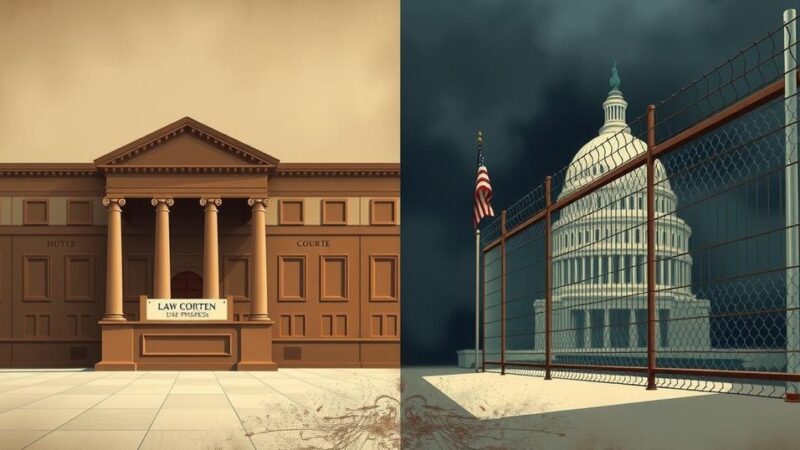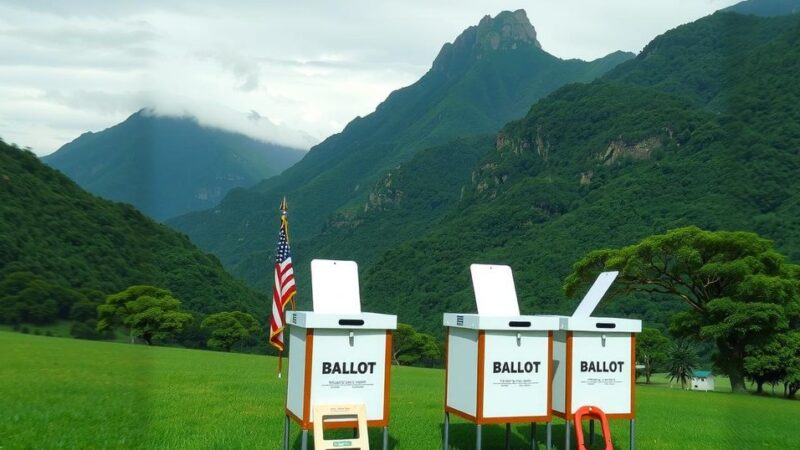Under the Trump administration, hundreds of immigrants, including those with protected status, have been deported to El Salvador without due process, often accused of gang affiliations based solely on tattoos. The case of Kilmar Armando Abrego Garcia highlights this issue, as he was illegally deported despite having protections against removal. A federal judge has temporarily blocked efforts to end deportation relief for Venezuelans, calling for proper procedures in immigration enforcement.
Since President Donald Trump assumed office, numerous immigrants and asylum seekers have been expelled to El Salvador to face detention at a notorious maximum-security facility known as CECOT, often without proper due process. Many of these individuals have been wrongfully accused of gang affiliations based solely on having tattoos. A notable case involves Kilmar Armando Abrego Garcia, a Salvadoran father in the United States with protected status, who was mistakenly deported despite legal safeguards preventing his removal.
The recent court admission by the Trump administration revealed that Abrego Garcia was wrongfully sent back to El Salvador after his family had settled in Maryland. Although the administration acknowledged this “administrative error,” they have declined to facilitate his return. Aaron Reichlin-Melnick, an expert from the American Immigration Council, pointed out, “Every single day now new stories are coming out showing that they made a lot of mistakes. Their goal is to ramp up deportations… and if that leads to a bunch of innocent people getting swept up alongside, the message is they don’t care.”
In addition to Abrego Garcia’s case, the U.S. has recently deported 17 individuals accused of gang membership from Guantánamo Bay to El Salvador. Critically, one Venezuelan asylum seeker was deported solely due to innocuous tattoos reading “mom” and “dad.” This exemplifies the lack of thorough vetting prior to deportations, raising concerns about human rights violations.
Despite the scrutinizing circumstances surrounding these deportations, politicians such as Vice President JD Vance have falsely labeled deported immigrants as criminals without evidence to support these claims. Aaron Reichlin-Melnick clarified that Abrego Garcia had never been convicted of any crime, stating that his deportation was based on misguided and inaccurate police reports from years prior.
Reichlin-Melnick testified that the diversion of federal law enforcement personnel to pursue immigration enforcement detracts from their original roles, potentially endangering national security. This reallocation of resources has removed agents from critical duties involving drug enforcement, public safety, and child protection.
In an important ruling, U.S. District Judge Edward Chen temporarily blocked efforts to terminate temporary protected status for many Venezuelans, which could affect thousands of individuals. Judge Chen indicated that the proposed changes to deportation policies could irreparably harm various vulnerable communities and stressed that any changes must follow legitimate processes, countering the administration’s claims of widespread criminality among Venezuelan immigrants.
In conclusion, the ongoing legal and ethical implications of the Trump administration’s deportation policies raise serious concerns regarding due process and humanitarian treatment. The misdeportation of protected individuals highlights a troubling pattern of negligence, and the potential for mass deportation of innocent individuals raises significant questions about the administration’s approach to immigration enforcement. It emphasizes the necessity for comprehensive and humane immigration policies that respect individuals’ rights and dignity.
The recent actions taken by the Trump administration regarding mass deportations to El Salvador underscore serious issues concerning due process and human rights. The misclassification and wrongful deportation of individuals like Kilmar Armando Abrego Garcia reveal critical flaws in the immigration enforcement system. This situation not only affects the individuals involved but also raises broader concerns about national security and the ethical implications of reallocated law enforcement resources. The ruling by U.S. District Judge Edward Chen is a relief to vulnerable populations that could otherwise face severe disruptions to their lives due to unjust policies. Therefore, it is paramount that immigration policies are approached with care, ensuring the rights and safety of all individuals.
Original Source: www.democracynow.org






